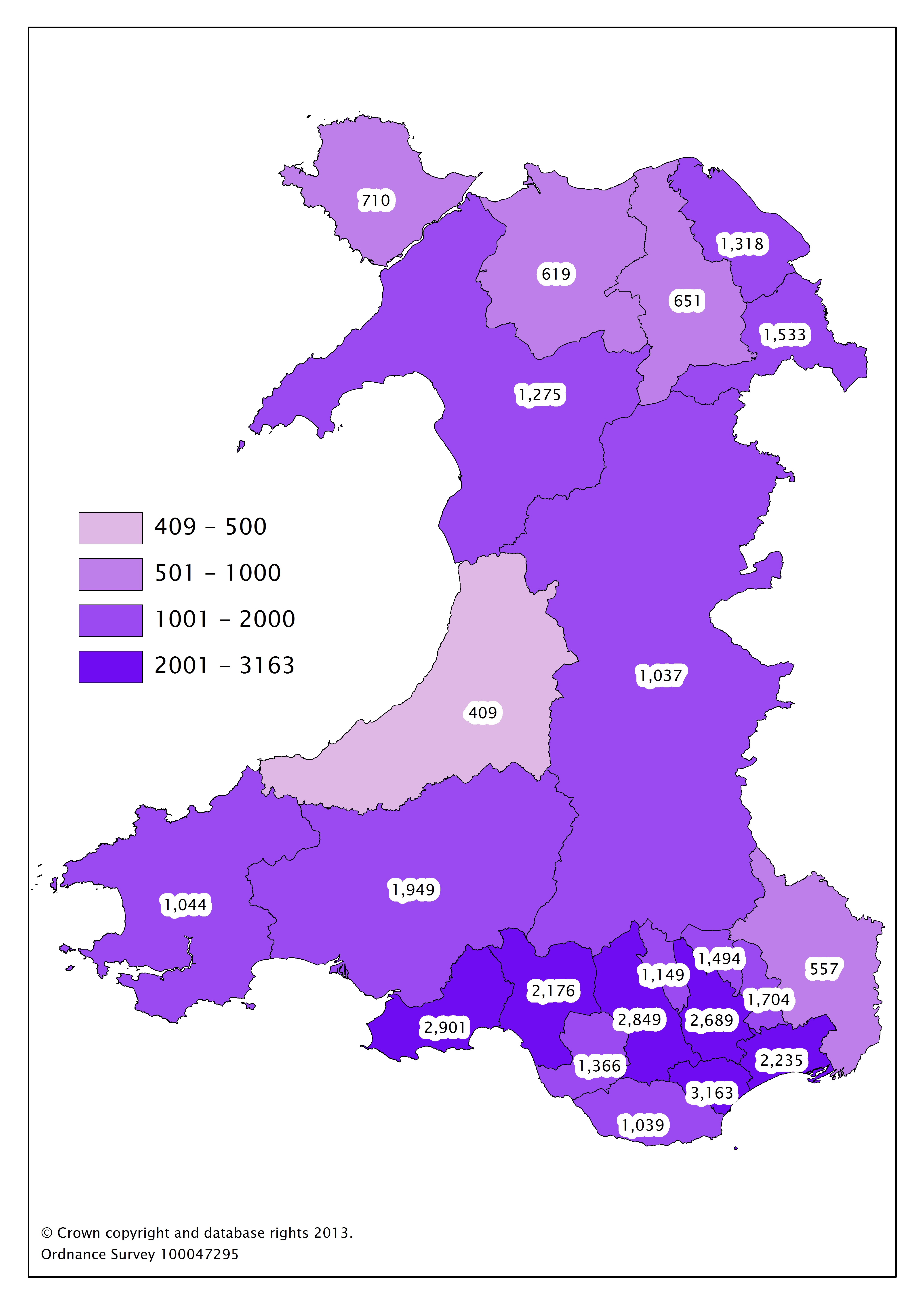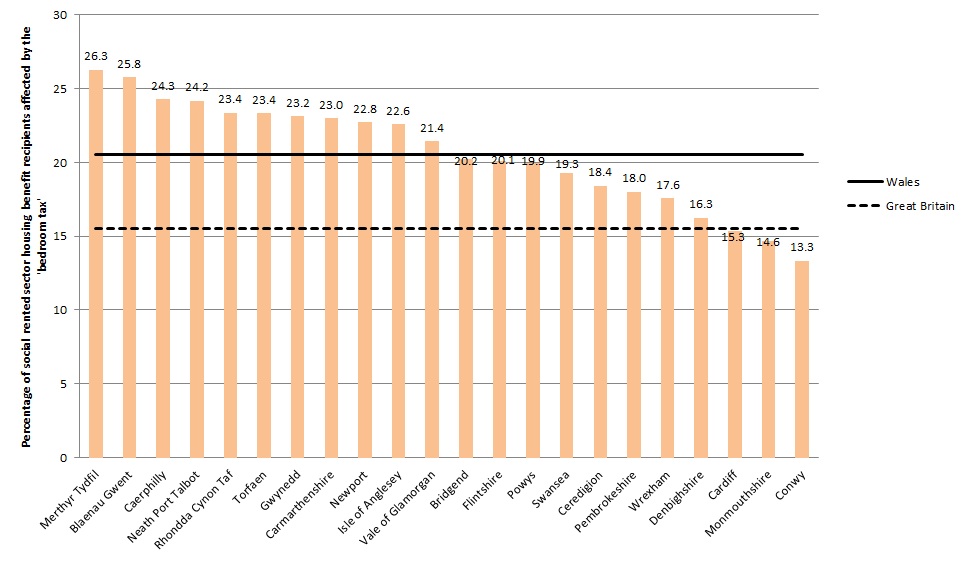Article written by Gareth Thomas and Hannah Johnson, National Assembly for Wales Research Service
Since 1 April 2013, working-age social housing tenants in receipt of Housing Benefit face a reduction in their entitlement if they live in housing that is deemed to be too large for their needs. The size criteria in the social rented sector restricts Housing Benefit to allow for one bedroom for each person or couple living as part of the household, with the following exceptions:
- children under 16 of same gender expected to share;
- children under 10 expected to share regardless of gender;
- disabled tenant or partner who needs non-resident overnight carer will be allowed an extra bedroom; and
- foster carers are allowed one additional room in their homes as long as they have registered as a foster carer or fostered a child within the past 12 months.
If tenants are deemed to be under-occupying their property, they face a reduction in their Housing Benefit of 14% for one spare bedroom and 25% where there are two or more spare bedrooms. Restrictions on entitlement to Housing Benefit based on the size of the accommodation occupied have applied to claimants living in privately rented housing since 1989. The policy has been labelled the “bedroom tax” and is also referred to as the “spare room subsidy”. On 13 November the Department for Work and Pensions (DWP) published the first official statistics on the Number of Housing Benefit claimants and average weekly spare room subsidy amount withdrawal. The publication contains details of the number of people affected by the size criteria in Great Britain from May 2013 to August 2013, down to local authority level. It is important to note that the published data does not include two groups of people who have been affected by the measure:
- People who have stopped claiming Housing Benefit where, for example, their entitlements have been reduced to zero by the deduction, or who may have decided not to claim Housing Benefit because their entitlement was reduced to a small value.
- People who have already moved, for example downsizing to the right sized accommodation within the social rented sector or moving into the private rented sector.
The figures show that in August 2013 33,876 people in Wales had a reduction in the amount of Housing Benefit paid to them as a result of the new size criteria, of which 3,163 were in Cardiff and 2,901 in Swansea. Figure 1: Number of people in each Welsh local authority who have seen a reduction in the Housing Benefit they receive as a result of the new size criteria, August 2013  The main conclusions of the data are:
The main conclusions of the data are:
- The average weekly reduction in Housing Benefit across Wales was £13.11 in August 2013, lower than the average of £14.48 across Britain, but higher than the average reduction in Scotland, Yorkshire and the Humber and the North East of England. Recipients in London had the highest average weekly reduction, at £20.22;
- The 33,876 people in Wales affected by the measure in August 2013 comprised 6.5% of all affected Housing Benefit recipients in Great Britain. In comparison, Wales’s share of the population of Great Britain is 5%;
- As of August 2013, the measure affected 21% of Housing Benefit recipients in social housing in Wales. In comparison, across Britain 16% of Housing Benefit recipients in the social rented sector have been affected; and
- The Welsh local authorities where the highest percentage of Housing Benefit recipients in the social rented sector have been affected by the measure are Merthyr Tydfil (26.3%), Blaenau Gwent (25.8%) and Caerphilly (24.3%).
Figure 2: Percentage of all Housing Benefit recipients in the social rented sector that have seen their Housing Benefit reduced in August 2013, Welsh local authorities  Source: Research Service calculations from Department for Work and Pensions, Stat Xplore
Source: Research Service calculations from Department for Work and Pensions, Stat Xplore






